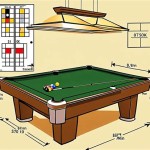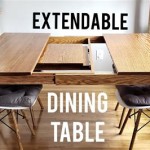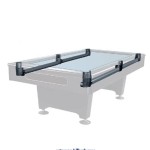Fencing Ideas For Vegetable Gardens
A well-designed fence can be a valuable asset to any vegetable garden. It can provide protection from pests and animals, create a sense of privacy and enclosure, and enhance the overall appearance of your garden. When considering fencing options for your vegetable garden, various factors should be taken into account, including budget, desired level of security, aesthetic preferences, and the specific needs of your plants. This article explores some fencing ideas, highlighting their advantages and disadvantages to help you make an informed decision.
Traditional Wooden Fences
Wooden fences are a classic choice for vegetable gardens, offering durability, versatility, and aesthetic appeal. They can be constructed from various wood types, such as cedar, redwood, or pine, each with its unique characteristics and price point. Wooden fences provide excellent protection from animals and pests, and their natural appearance can complement a wide range of garden styles. However, they require regular maintenance, including staining or painting to prevent weathering and decay.
Another consideration with wooden fences is their cost. While they are relatively affordable, they can become more expensive depending on the desired height, complexity, and wood type. Additionally, wooden fences can be prone to damage from strong winds or storms, requiring repairs or replacements.
Metal Fences
Metal fences offer a modern and durable option for vegetable gardens. They are available in various materials, including steel, aluminum, and wrought iron, each providing unique advantages in terms of strength, rust resistance, and aesthetics. Metal fences are generally low-maintenance, requiring minimal upkeep, and their strength makes them ideal for deterring larger animals.
However, metal fences can be more expensive than wooden fences, and their appearance may not be as appealing to all gardeners. Some metal fences can also become very hot in direct sunlight, potentially affecting nearby plants. Additionally, metal fences may require special considerations for grounding to prevent corrosion.
Living Fences
For a natural and aesthetically pleasing approach, consider a living fence. These fences consist of rows of closely planted shrubs or trees that grow together to form a barrier. Living fences offer several advantages, including providing natural habitat for wildlife, reducing noise pollution, and enhancing the overall beauty of the garden. They are also relatively low-maintenance, requiring minimal pruning and care.
However, living fences take time to grow and establish themselves, requiring patience and ongoing maintenance. They may also require additional support structures, such as posts or wire mesh, during their initial growth stages. Additionally, the choice of plants for a living fence is crucial, as they should be suitable for your climate and soil conditions.
Trellises and Other Structures
Instead of a traditional fence, consider using trellises or other structures to create a barrier for your vegetable garden. These options allow you to customize your fence to accommodate specific needs and preferences. For example, a trellis can be used to grow climbing vegetables like beans or cucumbers, providing both a support structure and a visual barrier.
Trellises and other structures can be constructed from various materials, including wood, metal, or bamboo. They offer a more lightweight and less intrusive option compared to traditional fencing. However, they may not provide the same level of protection from animals or pests.
When choosing fencing for your vegetable garden, carefully consider the advantages and disadvantages of each option. Factors like the required security level, budget, aesthetic preferences, and ease of maintenance should be taken into account. By considering these factors and exploring the different fencing ideas presented, you can create a safe, functional, and visually appealing space for your vegetable garden.

6 Tips To Create An Animal Proof Garden Fence The Seasonal Homestead
Keepin Critters Out Veggie Garden Fence Ideas Barefoot Design

Deer Proof Garden Fence Ideas

10 Fence Ideas For A Vegetable Garden Guides

Diy Garden Fence Ideas Protect Your Harvest Champagne And Mudboots Fenced Vegetable Building A Raised

32 Vegetable Garden Fence Ideas Balcony Web

9 Super Easy Diy Garden Fence Ideas Layout Backyard Landscaping

11 Garden Fence Ideas Bob Vila

11 Creative Vegetable Garden Fence Ideas To Keep Critters Out
Keepin Critters Out Veggie Garden Fence Ideas Barefoot Design








